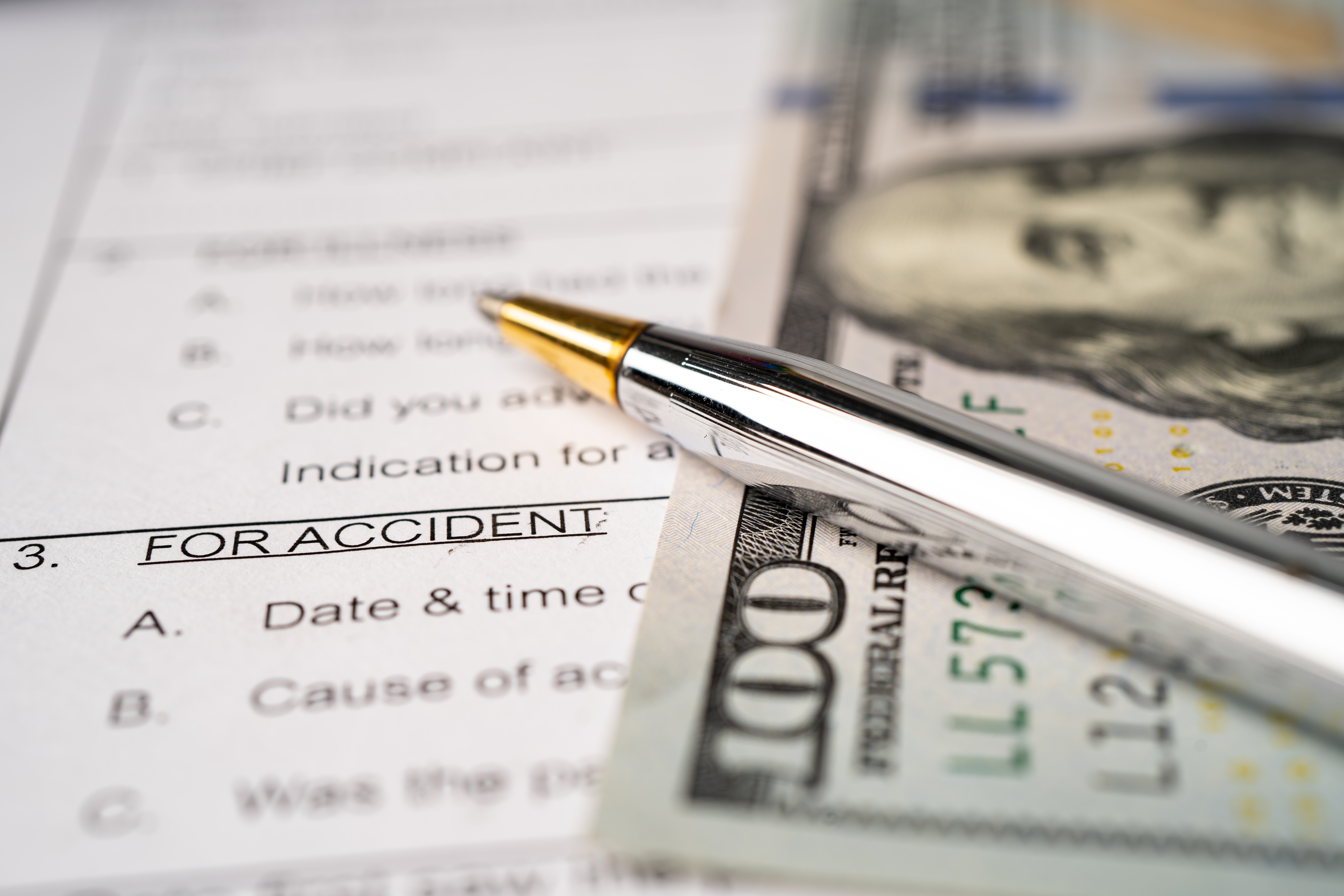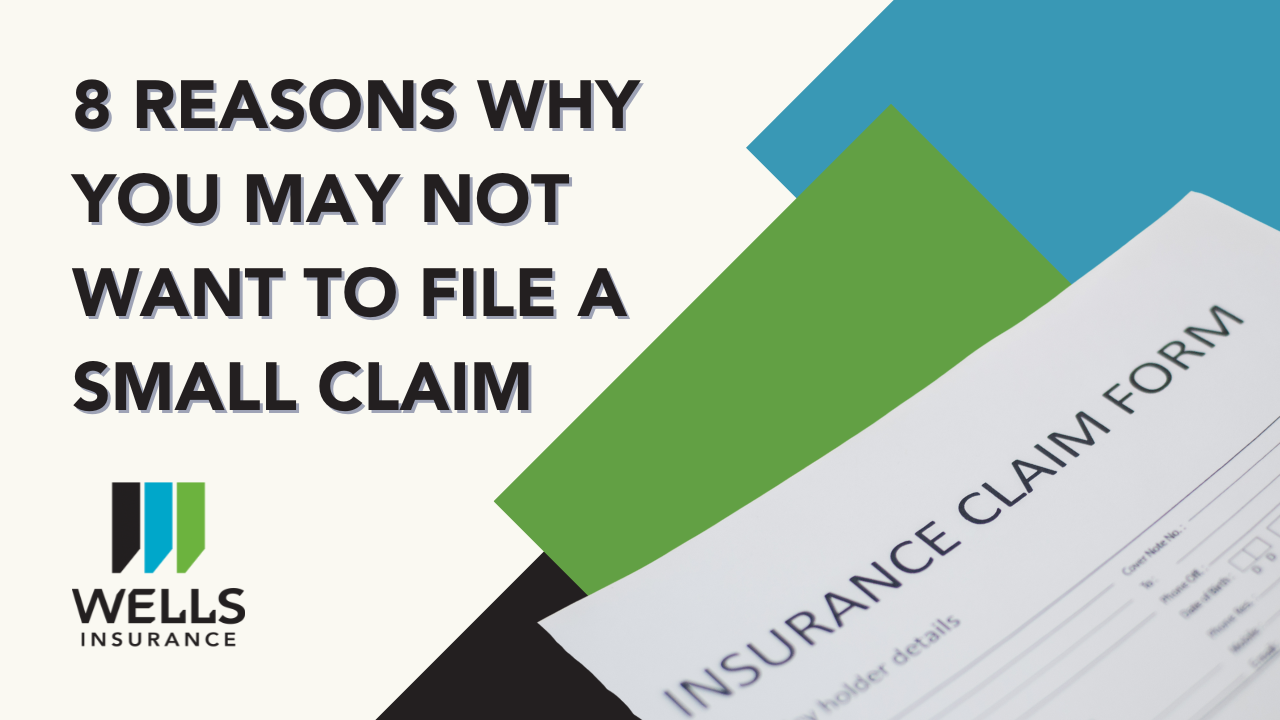Prior Claims and Their Effect on Your Policy

Literally thousands of factors can affect your insurance premiums. This means that your neighbor who has a similar house or maybe even the same year, make, and model of vehicle is probably paying a different rate for coverage. Many insurance rating factors speak to the likelihood of a future claim. With this in mind, it’s safe to say that prior claims can also speak to risk and may indicate a higher risk of a future claim.
Auto claims
Let’s look at auto insurance first. If you’ve had an accident recently, you’ll typically pay a higher rate than someone who hasn’t had an accident recently — assuming all other factors are equal. After some time, those old claims don’t affect your rate anymore, though. The amount of time can vary by jurisdiction or by insurer, but prior claims won’t affect rates forever.
On average, we have an auto accident once every 18 years. However, averages can often be misleading. Young drivers may have a higher frequency of accidents. It isn’t unusual for a less-experienced driver to have more than one accident in a short amount of time — and then to not have another claim for many years afterward.
An auto accident claim can lead to a surcharge, which means higher insurance costs, but that surcharge won’t last for 18 years. Often, insurers are more interested in your claim history for the past 5 years. If your driving follows the pattern of one accident every 18 years, you’ll enjoy non-surcharged rates for most of your time as an insured driver.

Auto claims
Let’s look at auto insurance first. If you’ve had an accident recently, you’ll typically pay a higher rate than someone who hasn’t had an accident recently — assuming all other factors are equal. After some time, those old claims don’t affect your rate anymore, though. The amount of time can vary by jurisdiction or by insurer, but prior claims won’t affect rates forever.
On average, we have an auto accident once every 18 years. However, averages can often be misleading. Young drivers may have a higher frequency of accidents. It isn’t unusual for a less-experienced driver to have more than one accident in a short amount of time — and then to not have another claim for many years afterward.
An auto accident claim can lead to a surcharge, which means higher insurance costs, but that surcharge won’t last for 18 years. Often, insurers are more interested in your claim history for the past 5 years. If your driving follows the pattern of one accident every 18 years, you’ll enjoy non-surcharged rates for most of your time as an insured driver.

Home claims
Home insurance claims can follow a similar pattern to auto claims. About 1 in 20 homes has a claim each year. Much like auto insurance, geography can play a role — especially if there are weather risks. Following the statistics, you can expect to make a claim about once every 2 decades. Like most averages, you have to view numbers as a guide rather than a guarantee, however. It isn’t uncommon for people to go through their entire lives without making a home insurance claim. Other households may have several.
A prior claim on a home policy can affect your rates going forward and some types of claims can even make it difficult to get coverage again. For example, in the US, sewer backup coverage is often not included as a standard coverage but if you do have coverage and have a claim, some insurers may be less-than-enthusiastic about writing a new policy. Statistics may be to blame. Somewhere there might be a statistic that speaks to the likeliness of another claim due to the same cause.
Like auto insurance, home claims can come with a surcharge and can affect rates even if you choose to change insurers. However, surcharges don’t last for 20 years, which is the average expected frequency of home claims.
Home insurance claims can follow a similar pattern to auto claims. About 1 in 20 homes has a claim each year. Much like auto insurance, geography can play a role — especially if there are weather risks. Following the statistics, you can expect to make a claim about once every 2 decades. Like most averages, you have to view numbers as a guide rather than a guarantee, however. It isn’t uncommon for people to go through their entire lives without making a home insurance claim. Other households may have several.
A prior claim on a home policy can affect your rates going forward and some types of claims can even make it difficult to get coverage again. For example, in the US, sewer backup coverage is often not included as a standard coverage but if you do have coverage and have a claim, some insurers may be less-than-enthusiastic about writing a new policy. Statistics may be to blame. Somewhere there might be a statistic that speaks to the likeliness of another claim due to the same cause.
Like auto insurance, home claims can come with a surcharge and can affect rates even if you choose to change insurers. However, surcharges don’t last for 20 years, which is the average expected frequency of home claims.

Crossover effect on rates
You might not realize it, but your auto claims can affect your home insurance policy premiums. However, don’t expect the crossover effect to last forever. If you continue to be careful and try to avoid risks that can lead to claims, the effect of claims is short-lived in comparison to the average frequency of claims.
One of the best ways to protect yourself against higher costs is to meet with your agent or broker to review your coverage. Often, there are discounts available that can help offset the cost of claim surcharges and can even help you improve safety. For example, many insurers offer a discount for defensive driving courses. Similar discounts are often available for home policies as well.
Give us call or send us an email to discuss options. 910-762-8551 insurance@wellsins.com


